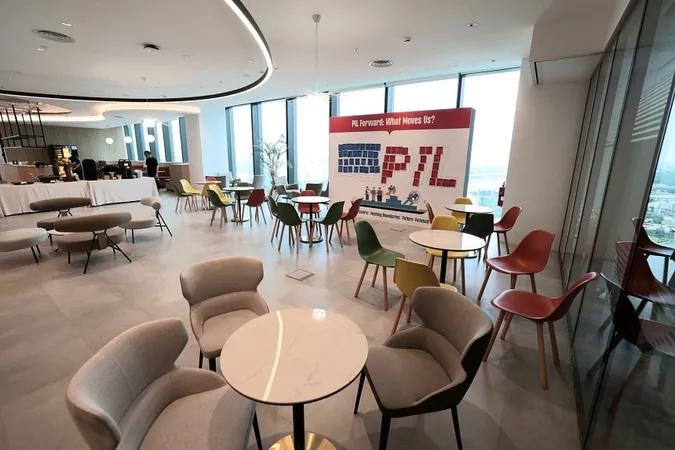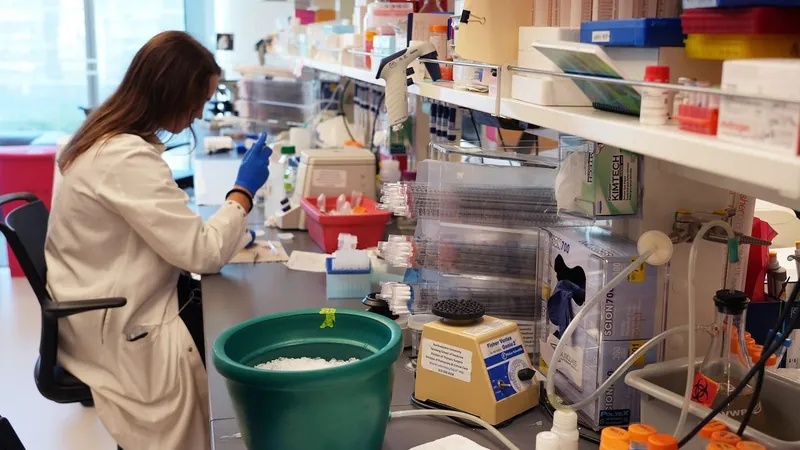
Automation Revolution: Singapore Shipping Giant PIL Cuts Jobs While Expanding Tech Investments
2024-11-15
Author: Wei
SINGAPORE
In a significant restructuring move, Pacific International Lines (PIL), a leading home-grown shipping company, has announced layoffs amidst an ambitious shift towards automation. The company revealed on November 13 that an undisclosed number of workers in Singapore have been let go as part of its strategy to enhance operational efficiency and global competitiveness through advanced technology.
While the exact count of affected employees and specific job roles remains undisclosed, a spokesperson for PIL communicated to The Straits Times on November 15 that the layoffs represent only a small fraction of the overall workforce in Singapore. Despite the restructuring, business activities at PIL's head office in Singapore will continue unaffected, indicating a targeted approach to job cuts.
Support for Affected Workers
In a positive initiative, PIL is collaborating with the Supply Chain Employees’ Union Singapore (SCEU) to support the departed workers. This partnership, which falls under the umbrella of the National Trades Union Congress (NTUC), aims to mitigate the impact of the layoffs by providing those affected with 'enhanced' severance packages that include outplacement services, training grants, extended medical coverage, and a projected bonus for 2025.
Strategic Shift to Automation
The job cuts are part of PIL's broader strategy to implement artificial intelligence and automation technologies. The shipping giant reports that it has previously expanded its workforce by over 30% in Singapore to support these initiatives. To further adapt to technological advancements, certain manual tasks are being relocated and centralized, preparing the company for a larger-scale automation rollout.
Reasonable Notice and Support
SCEU's executive secretary, Mr. Mohd Fahmi Aliman, clarified that PIL had provided reasonable notice before the layoffs, allowing the union enough time to negotiate the retrenchment packages and assistance for impacted employees. He praised the cooperative efforts to ensure the process is fair and respectful.
Investment in Modernization
The automation drive follows PIL's substantial investment of US$2 billion (approximately S$2.68 billion) initiated in 2022, aimed at modernizing its fleet with 13 dual-fuel container ships capable of operating on both liquefied natural gas and traditional marine fuel. The first two of these advanced vessels were delivered in Shanghai in October, and they rank among the largest in PIL's fleet, with the capacity to transport 14,000 containers each.
Future Expansion Plans
Moreover, earlier this month, PIL placed orders for five additional dual-fuel container ships, scheduled for delivery between 2027 and 2028, raising the total number of new vessels ordered since 2022 to an impressive 18.
Employee Training and Development
In a foresighted move, PIL also established an academy dedicated to providing tailored training for its employees and new recruits, ensuring that the workforce is well-equipped for the evolving demands of the shipping industry.
Conclusion
As PIL navigates the murky waters of automation and workforce changes, the shipper’s journey underscores a pivotal moment in the maritime sector, blending human workforce dynamics with the inexorable march of technology.





 Brasil (PT)
Brasil (PT)
 Canada (EN)
Canada (EN)
 Chile (ES)
Chile (ES)
 España (ES)
España (ES)
 France (FR)
France (FR)
 Hong Kong (EN)
Hong Kong (EN)
 Italia (IT)
Italia (IT)
 日本 (JA)
日本 (JA)
 Magyarország (HU)
Magyarország (HU)
 Norge (NO)
Norge (NO)
 Polska (PL)
Polska (PL)
 Schweiz (DE)
Schweiz (DE)
 Singapore (EN)
Singapore (EN)
 Sverige (SV)
Sverige (SV)
 Suomi (FI)
Suomi (FI)
 Türkiye (TR)
Türkiye (TR)